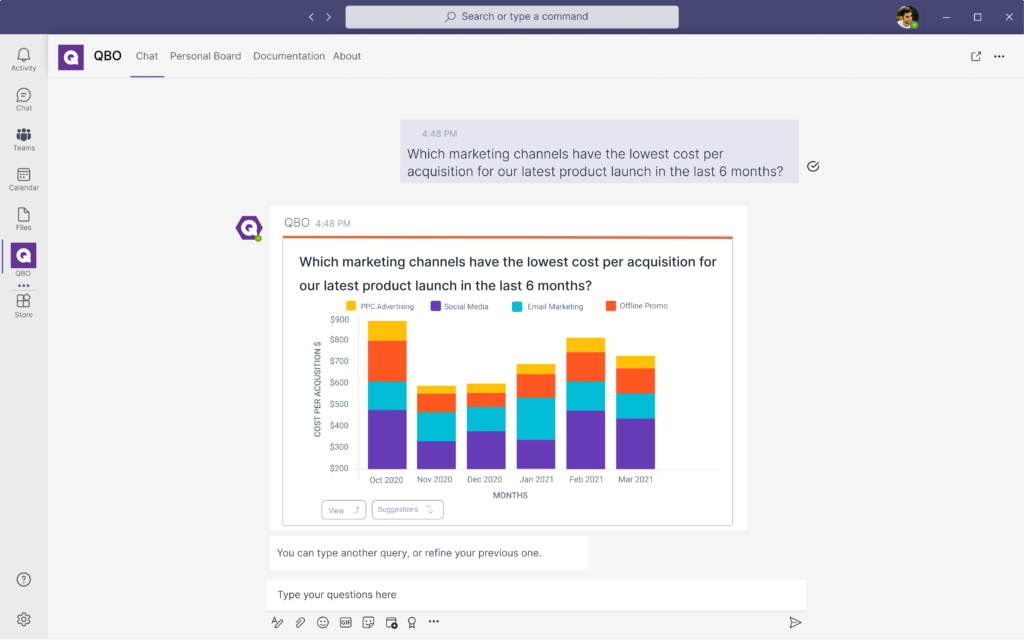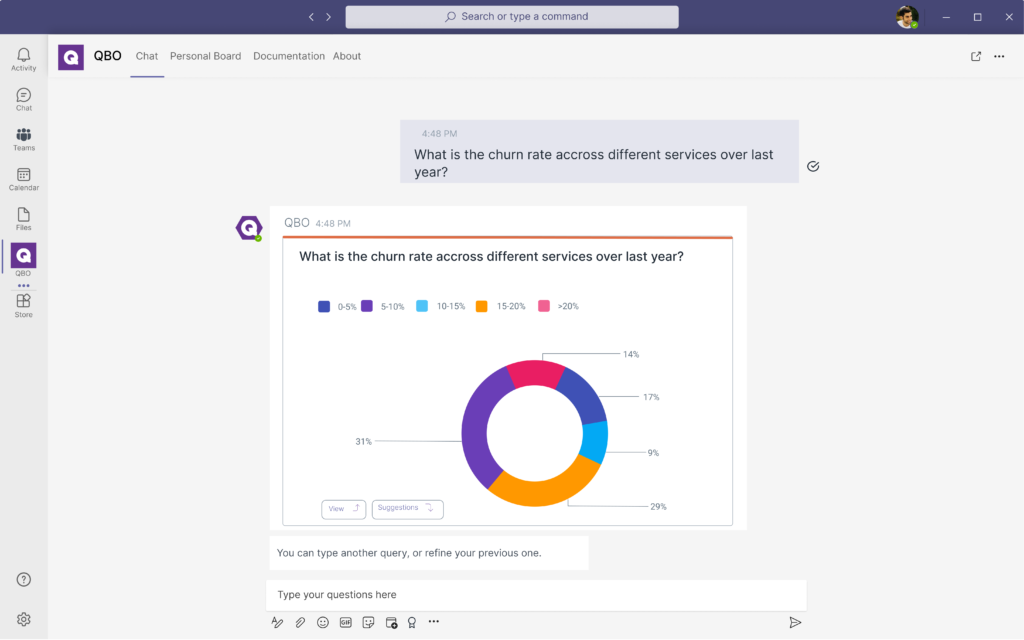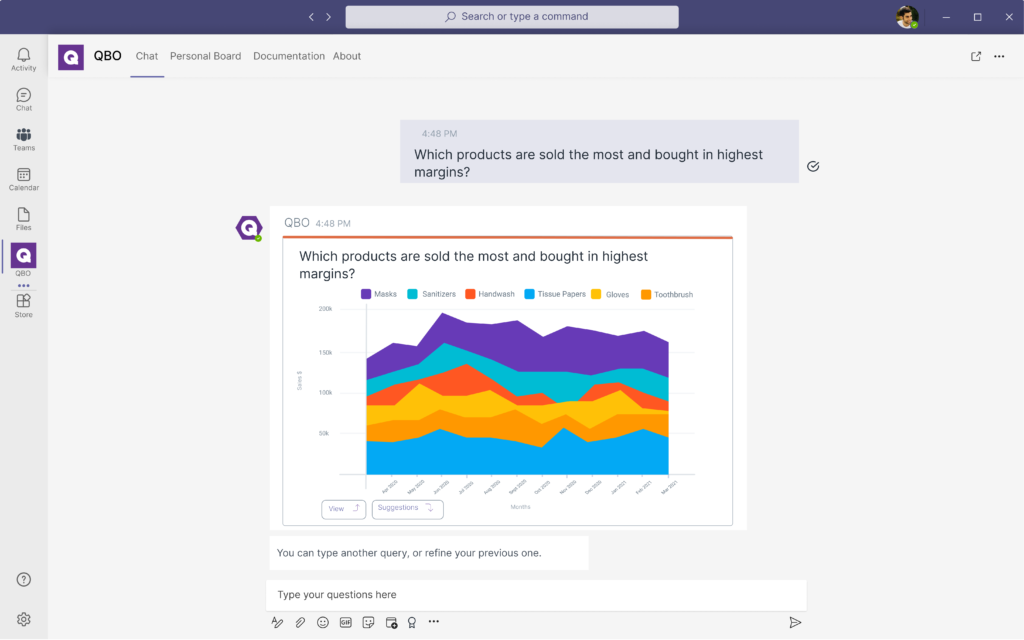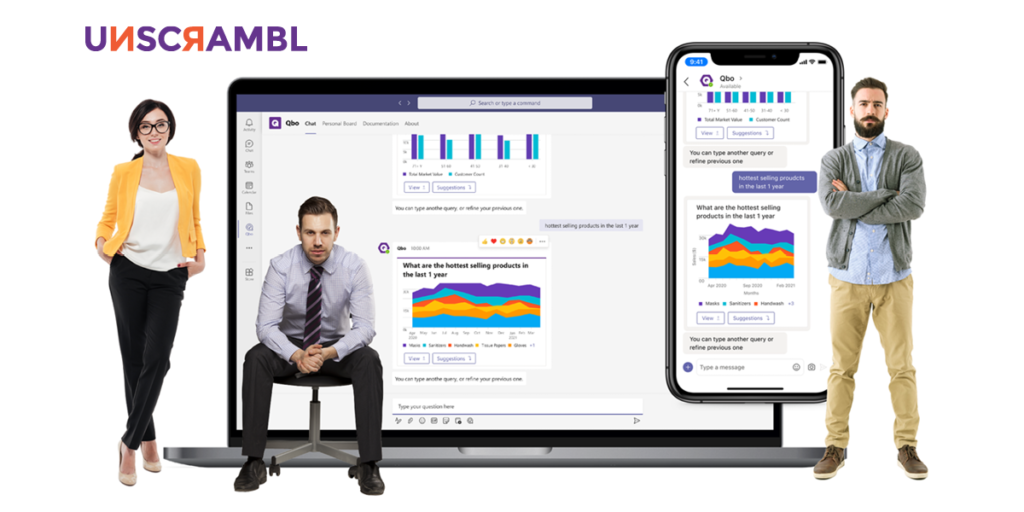 7 Minutes
7 Minutes

Rise Of The Augmented Consumer: Redefining The BI User Of Tomorrow
For decades, organizations have relied on their business intelligence and analytics tools to navigate a landscape of increasing competition and disruption.
The world is fast accelerating towards a heavily interconnected future where historical data holds less value while real-time analytics is becoming necessary to stay competitive and innovate ahead.
COVID-19 spurred the rapid adoption of digital technologies, many of which include BI and analytics tools. According to McKinsey, the number of IoT-connected devices worldwide is projected to hit 43 billion by 2023, which means a future of continuous streams of data which can be analyzed in real-time.
However, the current BI solutions that focus on visual exploration-based dashboards and descriptive reports won’t be sufficient for users to extract the most value out of their data. In addition, companies utilizing long-established analytics methods based on historical data will risk generating insights that are no longer relevant, resulting in missed opportunities that might never return.
The future of business intelligence will be powered by augmented analytics where the BI experience will be focused on the user to help them better achieve their end goal. It will be a new paradigm where users are truly empowered to be able to converse with their data to generate dynamic insights, turning them into the augmented consumer.
Through a combination of machine learning, artificial intelligence, and natural language processing, the augmented consumer will be empowered with personalized and automated insights that are highly relevant to them while being enormously valuable to the organization.
In this article, we will be going through the inevitable shift in business intelligence towards empowering the insightful consumer and why this heralds the era of true data democratization.
Self-Service BI & Dashboards Don’t Provide Enough Value For The Consumer Of Tomorrow
According to Gartner, by 2023, 30% of organizations will harness the collective intelligence across their analytics communities, helping them outperform competitors that rely only on self-service BI based on centralized analytics.
This highlights the eventual shift away from dashboards & self-service business intelligence towards an ecosystem where data is democratized and the ability to conduct insightful analytics is decentralized.
In order to compete, companies will need to harness the full potential of data analytics powered by augmented intelligence, conversational models, and machine learning.
But why aren’t self-service BI adequate? Why are business intelligence and analytics adoption in most organizations still so low at 30%?
1) Predefined Dashboards Are Overwhelming While Offering Minimal Flexibility
While many BI dashboards do provide certain levels of customization, they are often pre-defined modules and visualizations that only showcase the same old data to users.
By consistently only searching (or being fed) for the same result, teams will eventually run into the analytical cognitive bias, where they will be missing the forest for the trees.
This not only constricts the flow of fresh and unique insights, users will have to investigate the data and draw their own conclusions on what happened and the steps needed to take corrective or pre-emptive action.
This turns analytics into a tedious process that might result in users obtaining inaccurate insights that could lead to executing potentially disastrous business decisions.
2) Complex Workflows & A Continued Reliance On Data Analysts
One of the biggest reasons why BI tools adoption is still so low is due to interfaces not being intuitive enough and the tools, on the whole, being difficult to use.
In addition, data governance – the preparation, storage, and maintenance of data, is often rigid with many organizations not possessing the right framework to aid in maximizing the full potential of their BI solution.
This means there is still a substantial reliance on data analysts to define and refine data models so that they can be effectively analyzed to derive actionable insights. While this might have worked in the past, we are entering an era where real-time analytics matters to identify and capture time-sensitive opportunities.
3) A Steep Learning Curve To Overcome
Self-service BI dashboards do provide a platform for better insight discovery, however, most users are business or operations executives and not data analysts or IT experts.
This means a lower data literacy rate which could hinder users from asking the right questions as well as interpreting the insights given – even though they might be presented as intuitively as possible through beautiful visualizations.
Gartner highlights that by 2023, data literacy will become a key driver of business value. And to better establish data literacy, the business intelligence tool has to empower users and reduce (or even eliminate) the steep learning curve.
The augmented consumer will need to have the ability to naturally converse with their data to derive swift insights without external help. This is one of the basic building blocks of fostering a data-driven culture for an organization as well.
Defining The Augmented Consumer & Their Business Intelligence Needs
An augmented consumer is a user of business intelligence tools, a consumer of information that can fully harness the power of analytics without requiring the training of a data professional. The augmented consumer will be able to fully derive actionable and relevant insights from data with ease to make better data-driven decisions.
As the demands from BI users grow and the rise of the augmented consumer accelerates, predefined dashboards will be displaced by dynamically generated insights powered by conversational analytics.
Modern and innovative business intelligence tools will offer new augmented analytics experiences to users, providing powerful insights to the augmented consumer, equipping them with the capabilities once reserved for data analysts.
Conversational analytics BI tools such as Qbo help to fulfill the needs of today’s augmented consumers to help them stay on the cutting edge of decision-making to drive enhanced business value.
1) The Need For Ease Of Use
Traditional BI tools require users to have a working knowledge of data analysis and be rather data literate to effectively operate it. This causes delays and insights which are quickly outdated by the time it reaches the desk of business leaders.
With conversational analytics, users will be able to ask questions the way they want to their data, like how they would in a normal conversation, to gain actionable insights into their queries.
From descriptive and diagnostic questions to prescriptive and predictive questions, the augmented consumer will be able to understand every facet of the business.
They can ask questions like:
“Which customers are driving profitability over the last 12 months?”
“Which marketing channels have the lowest cost per acquisition for our latest product launch?”
And gain insight into how to optimize their business operations and take advantage of opportunities without the need for any data expertise.
2) The Need For Real-Time & Highly Intuitive Insights
Real-time analytics truly matters, especially in the financial and manufacturing industry when mountains of fresh data are being generated which require analysis.
With BI tools like Qbo, the augmented consumer will be empowered with instantaneous insights that are presented in the most suitable visualizations to help aid in formulating a coherent data story.
This helps users to easily tell a data story to stakeholders and business leaders for faster decision-making.
3) The Need For Dynamic & Automated Insights
Executives and leaders are busy and might miss opportunities to learn more insights about their business which would uncover hidden business opportunities.
Through machine learning, Qbo itself initiates conversations on topics that are highly relevant to each user by offering insights that can be investigated further by the consumer.
These dynamic and automated insights are highly useful to the augmented consumer especially in a busy environment where meaningful insights are highlighted autonomously, eliminating the need for predefined dashboards and manual exploration.
4) The Need To Keep Data Governance To A Minimum
While teams often collaborate in projects, deep work is still done within individual departments and silos. Thankfully with Qbo, data analytics can still be carried without the need for specialized data teams to prepare and process the data.
The heavy lifting of cleaning up the data and selecting the right data sets will be handled by artificial intelligence no matter how structured or unstructured your data is and whether they are stored on-premise or in a data warehouse such as snowflake.
This allows for minimal data governance and seamless analysis of your data.
5) The Need To Drive Data Democratization Across An Organization
Augmented consumers don’t just desire a tool that can help them out, they want a solution that can empower their entire organization with the ability to make better data-driven decisions.
With next-generation BI tools such as Qbo, the knowledge, and data literacy gap can be bridged to better enable true data democratization.
This will help spark the use of data analytics across the organization to drive positive change for employees while encouraging more conversations revolving around data-driven insights.
This allows companies to truly optimize their operations, evolve their decision-making, and accelerate their efforts to innovate ahead.
The Future Of Business Intelligence Has Arrived – 5 Industry Use Cases
As users move away from dashboards to BI solutions that decrease the complexity of analytics use while delivering numerous commercial benefits and unleash more innovation will be experienced across a myriad of industries.
Here are five use cases of how the BI solution of today’s augmented consumer, Qbo, can help organizations drive business value:
- Learn How Conversational Analytics Can Boost Performance In Manufacturing
- Discover How Augmented Analytics Will Transform The Fintech Industry
- See How Business Intelligence Can Help Reduce Customer Churn In Telcos
- Learn How Augmented Analytics Helps Retail Stores To Stay Competitive
- Check Out How Marketing Agencies Can Grow Faster With Augmented Analytics
Qbo – Empowering The Augmented Consumer
By 2025, augmented analytics functionality will be the driving force for BI and data analytics adoption. At Unscrambl, we are helping to spearhead the advancement of business intelligence that empowers everyone across the organization.
With Qbo, experience the power of conversational analytics and unlock the power of more intuitive data analysis and swifter data-driven decision-making.
Embark on a free 14-day trial today and empower your people with the future of business intelligence.








